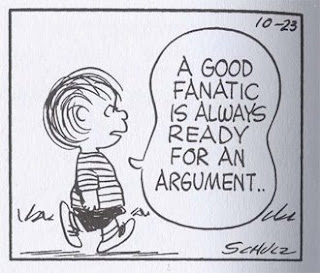What Luther was speaking to (from the context of his remarks) had to do with the restoration of the sermon and the proclamation of the Gospel to the Mass. Certainly, Luther was also condemning the language of the Roman Canon and the practice of the Church at the time in which the emphasis was not upon Sacrament or grace conferred but sacrifice offered. This was, however, old news, since Luther had already offered, reluctantly to be sure, two forms of an evangelical Mass many years earlier (Formula Missae some 9 years before and a bit more radical Deutsche Messe some 6 years before).
Dorothea Wendebourg published an article in the Lutheran Forum that deals with some of these issues. In it she suggests that "Luther's assessment of the reformed order of service in Wittenberg stands in sharp contrast to the judgment of today's liturgical scholars..." She suggests that today we are more likely to emphasize the continuity with liturgical tradition than the new beginning Luther's words seem to envision.
So who is right? Without reviewing the whole article here, I would suggest that one big difference is the context. What was a radical departure in Wittenberg nearly 500 years ago is hardly radical today. The restoration of the sermon is old news to us and the current worship scene -- even among Lutherans -- is more likely to see the centrality of the sermon than the Sacrament as essential to the worship service. Luther would be shocked at the state of worship among non-Roman Catholic Christians of the West. What we know of Luther's overwhelming joy at the return of the sermon and the replacement of the sacrificial motif with the sacramental, would surely turn to sadness and great despair as the Divine Service is absent from the life of most Protestants and the worship service itself ordered more as divine entertainment than divine mystery made present.
Luther's liturgical reform was not the overthrow of the Mass but the restoration of the Sacrament as the center of the Mass and the proclamation of the Gospel as the second of its twin peaks. We know that Luther's return to Wittenberg following his captivity in the Wartburg was accompanied by shock and dismay over what had happened while he was away. The more radical elements had literally overthrown the Mass and Luther had no stomach for such a reform. He sent them packing in order to restore the Mass and shortly thereafter offered up his own evangelical order (albeit in Latin) in which the guiding principle of reform was to make as few changes to the outward appearance and observance of the Mass as were required to accomplish the overall goal of restoring the Gospel and the Sacrament to their rightful places as the two towers of grace that held up the whole Mass.
There are many within Lutheranism today who love to appeal to Luther's words in 1532 as justification for their abandonment of the Divine Service in favor of a local liturgy decidedly non-liturgical and with not even a passing resemblance to the liturgical tradition Luther inherited or added to by his modifications of form and content. In fact, in not a few discussions those who offer the Divine Service from the Lutheran Service Book as the form(s) to be used in the Lutheran Church today are accused of re-imposing the Mass upon the people of God and undoing the Reformation work which is Luther's liturgical legacy. They delight in speaking about the ceremonial usages, ritual, and practices as adiaphora -- falsely translated as things unimportant or indifferent instead of things about which no rule can be demanded which would bind the consciences of men with the rules of man as conditions upon their salvation. They have grown weary of the discussion of lex orandi lex credendi and instead appeal to what works to pack the pews or fill the offering plates.
I maintain the Luther would not cotton to such abuses of freedom that have become the license to do whatever you darn please on Sunday morning. In fact, it is my great confidence that Luther just might run out of town many of those who speak and act more like Andreas Rudolph Bodenstein von Karlstadt and label them all as dangerous sectarians with revolutionary tendencies. We do not need any modern day Bildersturm from those who, like Karlstadt, have more in common with English Baptists, Puritans, and Calvinists than Lutherans. What would Luther think walking into the stark boxes of many modern church buildings, without an altar or the Sacrament, without pulpit or lectionary preaching, and without adornment and ceremonial to draw attention to the purpose of this holy space? I think he might wonder if it were time for a new Reformation....
